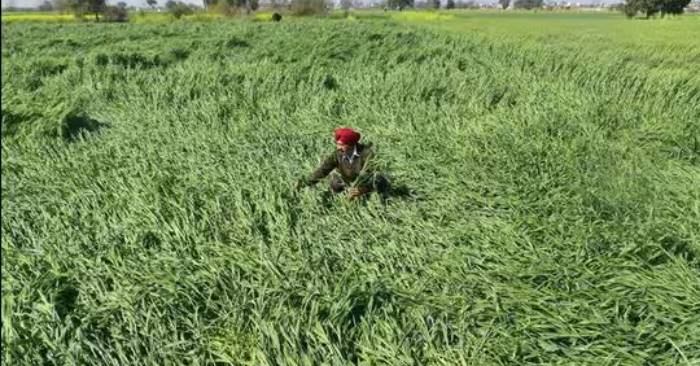Untimely Rain and Hailstorms Threaten Crop Yields, Prompting Concerns Over Food Prices

Unseasonal rain and hailstorms have struck northern Indian states, causing significant damage to winter-sown crops such as wheat, mustard, and chickpeas. This adverse weather has led to delays in harvesting and raised concerns about potential impacts on crop yields, thereby posing a threat to efforts aimed at stabilizing elevated food prices. Wheat, a staple crop, particularly in regions like Punjab, Haryana, Madhya Pradesh, and Rajasthan, has been severely affected, with state revenue departments assessing the extent of losses. The India Meteorological Department’s forecast of intense rainfall, snow, and hailstorms in early March has compounded worries, potentially challenging the earlier optimistic estimates of a record wheat production of 112 million tonnes.
While the Union government had set a wheat procurement target of 30-32 million tonnes for 2024-25, the recent crop damage has raised doubts about achieving these goals. The need for robust harvests is emphasized due to lower wheat outputs in the preceding years, leaving state-held stocks at a seven-year low. The government relies on winter-sown crops to replenish reserves and support various welfare programs. The adverse weather conditions have not only impacted wheat but also oilseeds like mustard, raising concerns about broader implications on food prices. As higher food production is critical to mitigate food inflation, the government may face challenges in achieving its objectives and might reconsider certain export restrictions, although no immediate plans for such changes have been announced.
In states like Uttar Pradesh, where wheat, mustard, and gram crops have suffered damage, Chief Minister Yogi Adityanath has released compensation for affected farmers. The extent of crop loss is being evaluated, with damage reports emerging from various districts. Despite these challenges, the government remains cautious about lifting export restrictions promptly, emphasizing the need for steady and robust harvests to address the concerns of exhibitors and distributors in the film industry. The impact of these weather-related challenges goes beyond wheat, affecting oilseeds, seasonal horticulture produce, and potentially influencing overall food prices, adding urgency to the government’s focus on agricultural policies and initiatives.






